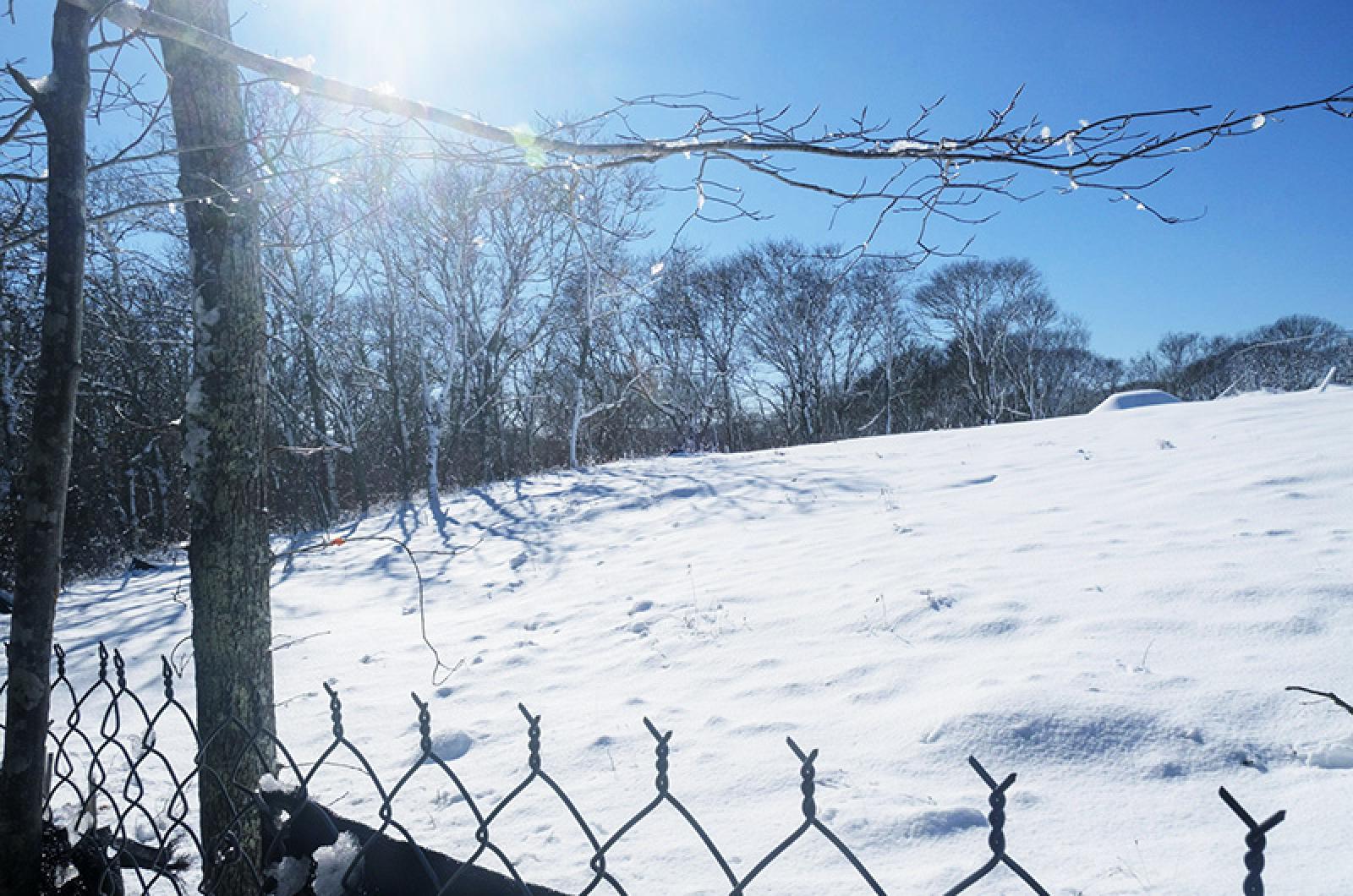The death of a longtime U.S. First Circuit Court of Appeals judge has left a high-stakes case involving a proposed Aquinnah Wampanoag gaming facility on the Island in limbo, as both sides continue the protracted wait for answers from the bench.
The case, which was heard virtually before a three-judge federal appeals court panel in early September, is an appeal of a 2019 decision from a U.S. District Court judge that requires the tribe to obtain local building permits before construction can begin on the bingo hall.
But before the appellate court could issue a ruling, one of the three judges on the panel died at the age of 87. The death on Oct. 27 of Hon. Juan R. Torruella has focused attention on the court’s arcane internal procedures, which attorneys say are governed by long practice rather than published rules.
Meanwhile, activity has been frozen on the bingo hall construction site — located off State and Black Brook Roads on tribal land in the town — since late 2019.
A native of Puerto Rico, Judge Torruella was first appointed a federal district judge in 1974 by President Gerald Ford, then named to the appellate court by President Ronald Reagan. He served as its chief justice from 1994 to 2001.
His involvement in the tribe’s efforts to construct a gaming facility in Aquinnah dates to 2017, when a panel of the appellate court overturned a lower court ruling and granted the tribe’s right to construct a class II gaming facility in the town. That 3-0 decision was written by Judge Torruella.
During the September hearing, Judge Torruella hammered Aquinnah town attorneys with questions regarding case history, precedent and the scope of the federal laws that govern Indian gaming rights.
According to general procedure in the First Circuit, immediately after a hearing — and generally on the same day — the three-judge panel that heard the case will briefly discuss the matter in a meeting called a semble. Each judge gives an opinion on the case, and one of the justices is chosen to write the opinion.
In the event of a death on the panel, if all three justices had agreed in the private semble, then the death would not affect the outcome of the case, allowing it to be decided in a 2-0 opinion. But if the dead justice leaves the decision in a 1-1 deadlock, the First Circuit will appoint a third justice to decide the case.
The newly appointed justice then has the option of either rehearing the case, or concluding that the initial hearing and case material is enough for them to make a decision. A rehearing would delay the case outcome considerably.
It is not known what took place in the semble in the tribe case and there have been no announcements about the case.
The other two judges on the panel are the Hon. William J. Kayatta, 2nd and the Hon. O. Rogeriee Thompson. Judge Kayatta, who also sat on the 2017 panel, joined Judge Torruella in ruling in favor of the tribe in that case.
An analysis of more than a dozen opinions issued by the First Circuit since Judge Torruella’s death shows there have been no cases in which the court had to appoint a third justice to his panel. Almost every case in which an opinion has been issued after his death has included a footnote signaling that the decision was made by the two living justices.
At least two of the opinions, one issued in December involving an immigration appeal, the other issued in January involving a dispute between AVEO Pharmaceuticals and the FDA, have included the exact panel of Judge Torruella, Thompson and Kayatta. Both cases were heard after the tribe’s case, one on Sept. 14 (the day of the tribe’s hearing) and the other on Oct. 6.
Judge Torruella’s seat on the First Circuit remains one of only four current appellate court judicial vacancies, and the only vacancy left over from the Trump Administration. President Joe Biden has not yet nominated a replacement.







Comments (10)
Comments
Comment policy »